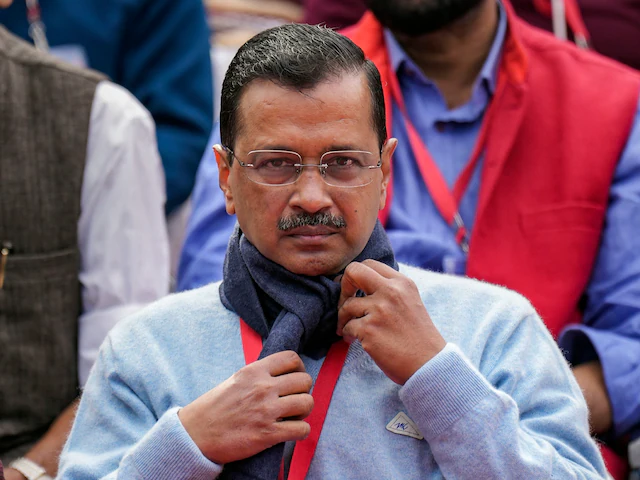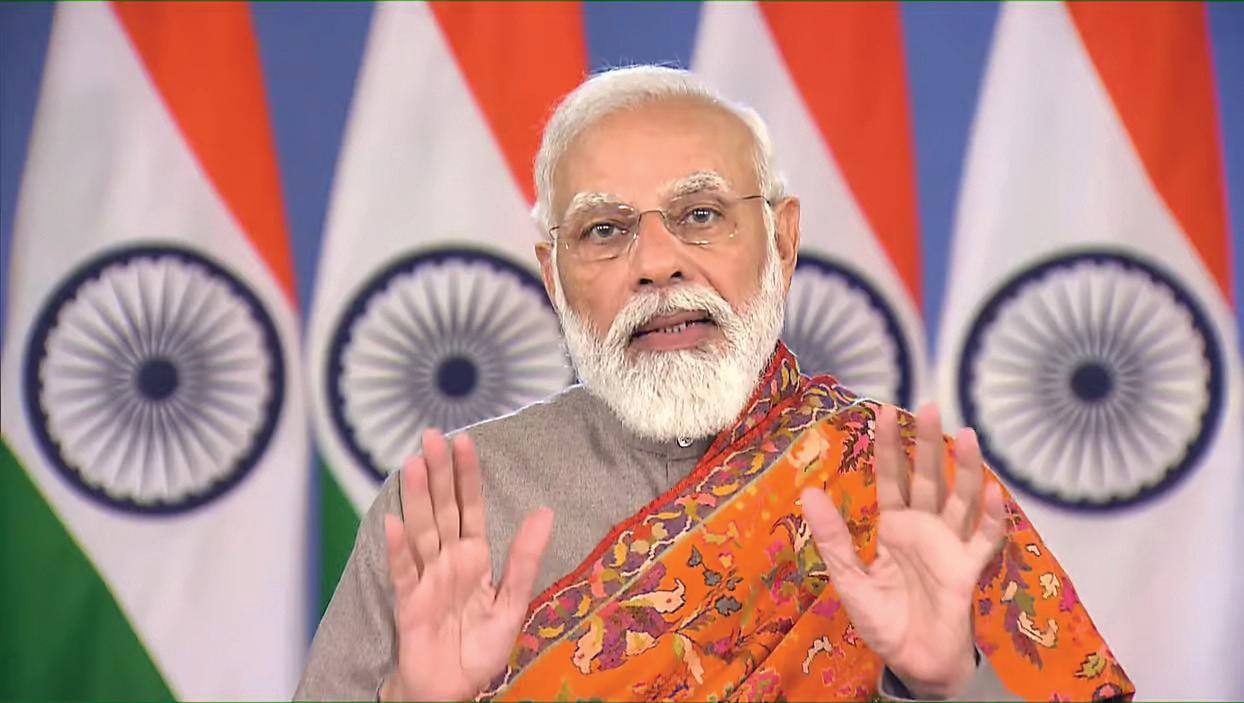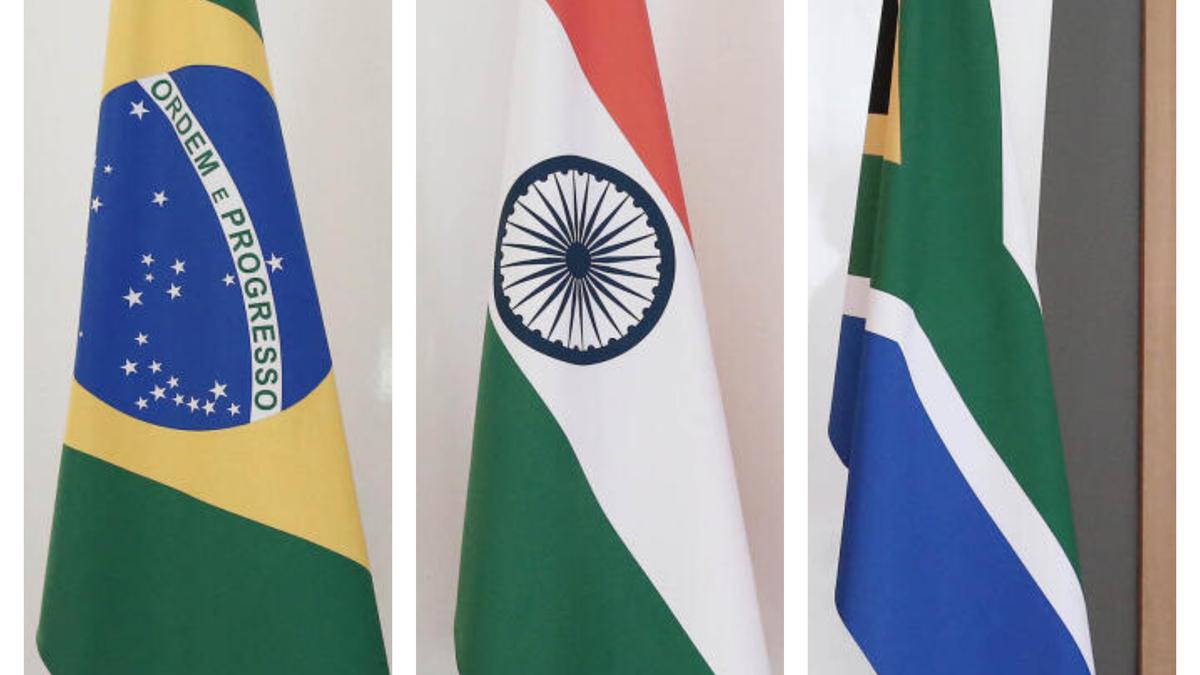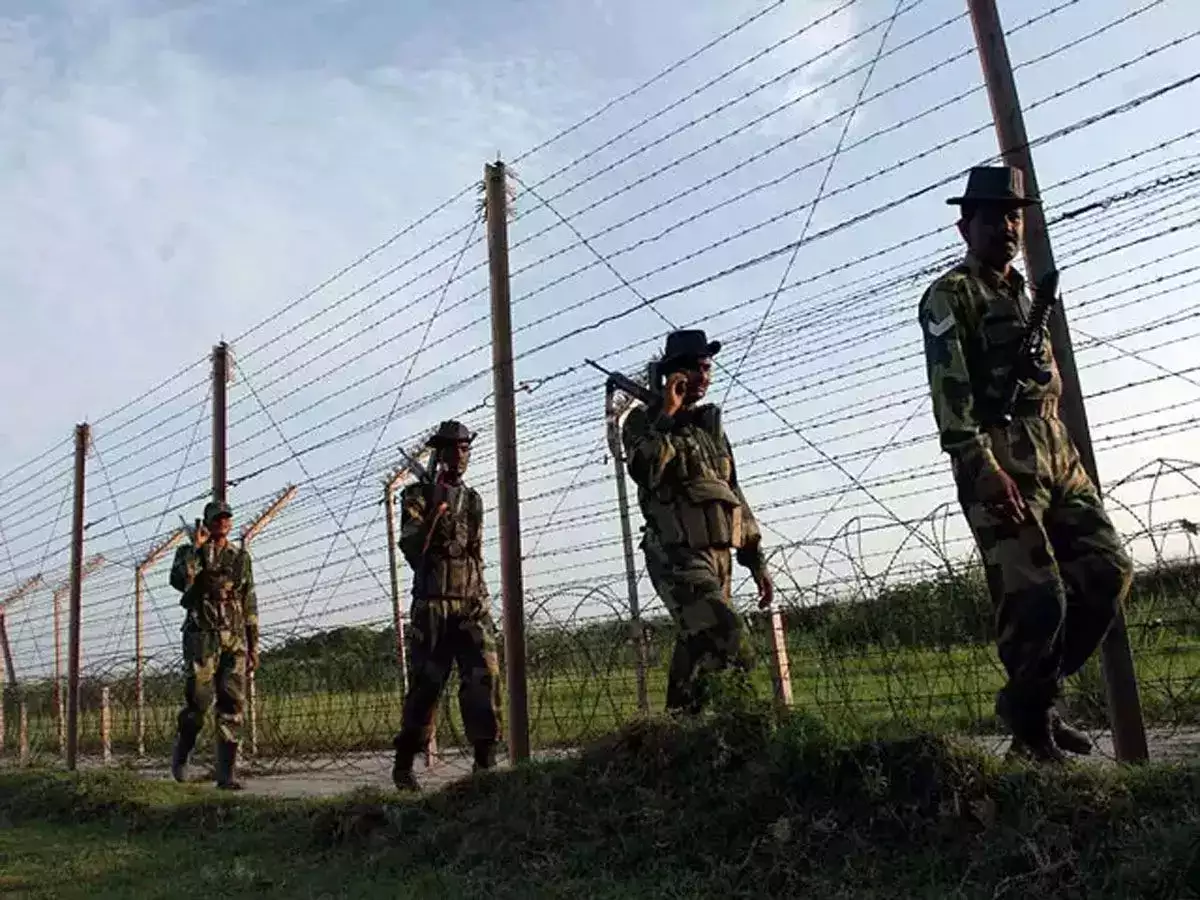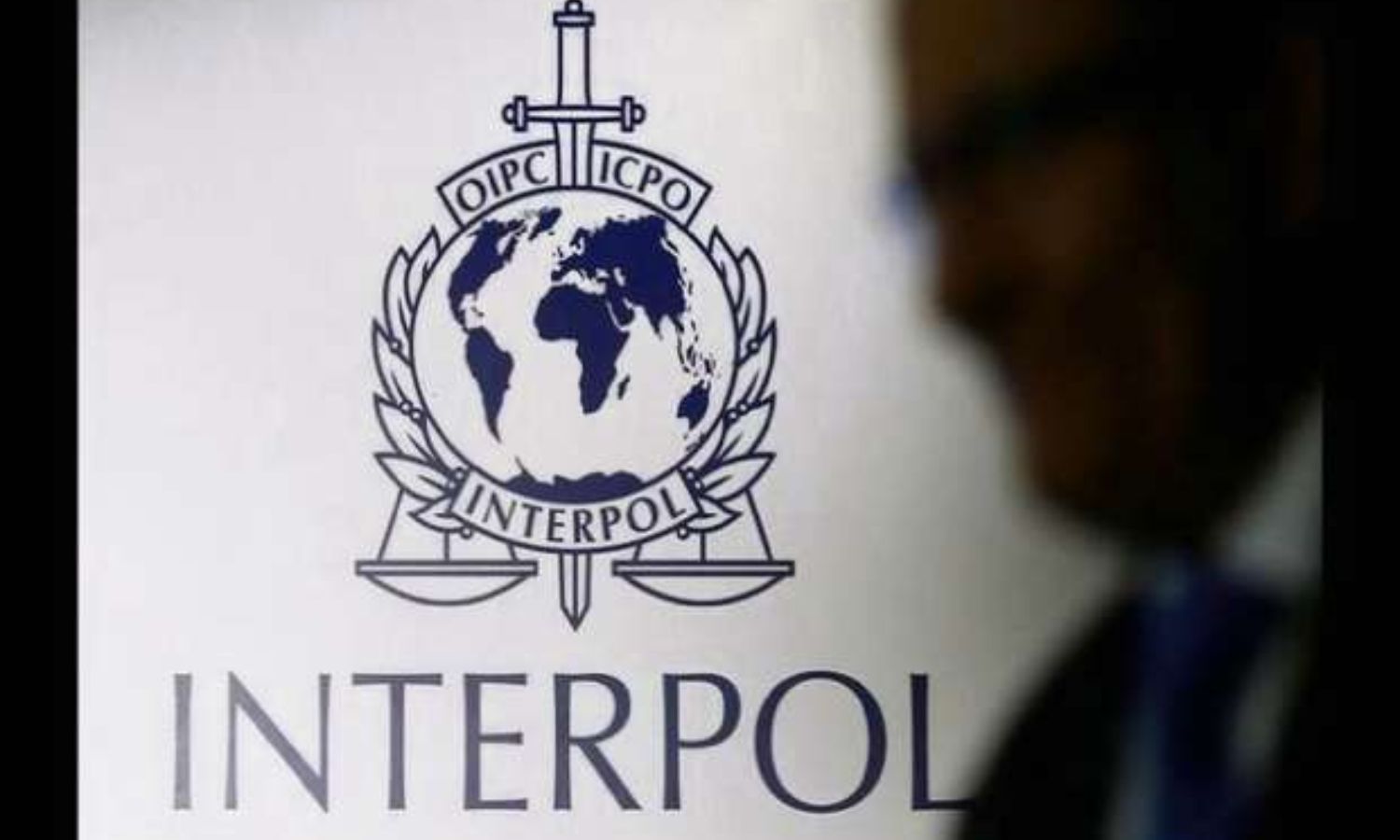In a most significant judgment directly affecting the detenus, the Delhi High Court in a recent, remarkable, refreshing, robust and rational judgment titled Zakir Khan v. Union of India and other connected matter in W.P.(CRL) 72/2022 and CRL.M.A.788/2022 and so also in W.P. (CRL) 73/2022 and CRL.M.A.791/2022 delivered most recently on May 2, 2022 has minced just no words to observe that a detention order passed by the Detaining Authority based on “illegible” copies of documents suffers from non-application of mind and is liable to be quashed. It added that a further failure and non-supply of legible copies of all documents to the Detenu, despite request and representation, renders the order of detention illegal and bad in law. We thus see that a Division Bench of Delhi High Court comprising of Justice Siddharth Mridul and Justice Rajnish Bhatnagar allowed the petitions filed by two detenus namely Zakir Khan and Sanjeev Kumar praying for quashing of detention orders dated November 26, 2021 issued under Section 3(1) of the Conservation of Foreign Exchange and Prevention of Smuggling Activities Act, 1974.
To start with, this brief, brilliant, bold and balanced judgment authored by Justice Siddharth Mridul for a Bench of Delhi High Court comprising of himself and Justice Rajnish Bhatnagar puts forth in para 1 that, “These two writ petitions under Article 226 of the Constitution of India read with Section 482 of the Code of Criminal Procedure 1973, have been instituted on behalf of Zakir Khan (hereinafter “Detenu No. 1”), the Petitioner in W.P.(CRL.) 72/2022 and Sanjeev Kumar @ Sanjeev Kumar Yadav (“Detenu No. 2”), the Petitioner in W.P.(CRL.) 73/2022 (hereinafter collectively referred to as the ‘Detenus’), praying for quashing of detention orders, both dated 26.11.2021, bearing No. PD-PD-12001/17/2021-COFEPOSA and PD12001/18/2021- COFEPOSA, issued under Section 3(1) of the Conservation of Foreign Exchange and Prevention of Smuggling Activities Act, 1974 (hereinafter “COFEPOSA”) against the Petitioners/Detenus No. 1 and 2 respectively; and for further directions that the detenus be set at liberty forthwith. As these Petitions raise common questions of law and are premised on similar facts, they are being disposed off by this common order.”
While dwelling on the facts of the case, the Bench then envisages in para 2 that, “The relevant facts qua the detenus, as are necessary for the adjudication of the subject writ petitions are briefly encapsulated as follows: –
i) The Income Tax Department conducted a search and seizure operation on 10.10.2021 at 23 premises allegedly belonging to the Detenu No. 1 and persons allegedly associated with him. Thereupon, a Statement (Annexure P-4) of the Detenu No.1 was recorded u/s 132(4) of the Income Tax Act, 1961, on the 11.10.2021, wherein the Detenu No. 1 admittedly stated that he had studied only till the VIII standard and therefore, expressed his volition to record his statement in Hindi.
ii) That, further on 13.10.2021, a Container No. PCIU8689880 (40 Feet) imported by one M/s Indo Fab, at Kolkata Port, with a declaration stated to contain HDMI cables, was subjected to examination by the Income Tax Authorities in the presence of port custom officers wherein it was found that it contained several prohibited items namely, old and used/refurbished laptops, mobile phones etc. Accordingly, the same was detained by the Customs officers at Kolkata. It was alleged that the said firm M/s Indo Fab was owned/controlled by the Detenu No.1.
iii) That on the basis of information received from the Income Tax Department, New Delhi; the Directorate of Revenue Intelligence, Delhi Zonal Unit (hereinafter DRI/Respondent No.3) initiated search proceedings at the purported residential premises of the Detenu No. 1 i.e., at S-80 Greater Kailash-I, New Delhi, on the 18.10.2021. During the search, certain documents allegedly found stored in the said premises in the form of files, loose documents, writing pads, diaries, Certificate of Incorporation/Articles of Association pertaining to three Hong Kong based supplier firms on which the name of the Detenu No.1 was mentioned as nominated person were recovered. All documents relevant to the investigation were resumed for further investigations in relation to the suspected undervaluation of imported goods by the firms allegedly controlled/owned by the Detenu No.1 and the Panchnama was drawn.
iv) On 18.10.2021, upon further search conducted at the office premises of Mr. Anurag Tiwari, Custom Broker-proprietor of M/s Anurag Tiwari situated at L-509, Gali No. 15, Mahipalpur Extension, New Delhi, when it was allegedly noticed that the clearance work of imports made in relation to the firms purportedly controlled/owned by the Detenu No. 1 was handled by one Sanjeev Kumar Yadav (Detenu No.2), having Custom Broker firm namely, M/s Sanjeev Kumar situated at Khasra No. 808, Gali No. 6B, K Block, Mahipalpur, New Delhi. Accordingly, search proceedings under the Customs Act, 1962 were carried out at the said office of Sanjeev Kumar whereupon certain documents were allegedly found stored in the said premises, in the form of files, loose documents etc. in respect of the said firms purportedly controlled/owned by the Detenu No.1. The officers of the DRI resumed the said documents for further investigations.
v) On or about the 18/19.10.2021, the Detenus were arrested by officers of the DRI and produced before the Court of CMM (Duty Magistrate), Patiala House Courts through Virtual Conference at around 08:30 PM (as it was a holiday) and were remanded to 3 days Judicial Custody.
vi) On 22.10.2021, Detenus were produced before the Learned Court of CMM, Patiala House Courts, New Delhi and remanded to 14 days judicial custody till the 04.11.2021.
vii) The Detenus admittedly filed retraction applications on the 28.10.2021, before the learned CMM Court thereby, retracting their statements recorded on 18/19.10.2021 before the DRI.
viii) The DRI then caused to be filed an application before the learned CMM, Patiala House Courts, New Delhi seeking permission to record statements of the Detenus u/s 108 of the Customs Act, 1962, which was allowed vide order dated 01.11.2021.
ix) On 02.11.2021, another container No. PCIU8010617 (40’) imported by M/s Viha International at Kolkata Port, with a declaration to contain HDMI cables, was subjected to examination by the officers of DRI, Kolkata wherein it was allegedly found that it contained several prohibited items namely, old and used laptops, CPUs. Accordingly, the same was detained by the officers of DRI, Kolkata. It is alleged that the said firm M/s Viha International was also owned/controlled by the Detenu No. 1.
x) On 05.11.2021, the DRI caused to be filed an application before the learned CMM Court seeking extension of the Detenus remand for a further period of 14 days. Vide Order dated 05.11.2021, the judicial remand was extended till 18.11.2021.
xi) On 08.11.2021, Bail applications were filed by the Detenus before the learned CMM, Patiala House Courts, New Delhi, both of which were summarily declined vide an order dated 15.11.2021.
xii) Judicial remand of the Detenus was further extended for a period of 14 days till 02.12.2021 by the Ld, CMM, vide order dated 18.11.2021.
xiii) On the 26.11.2021, the subject impugned detention orders (Annexure P-1) were passed by the Detaining Authority (Ministry of Finance, Department of Revenue, Central Economic Intelligence Bureau, COFEPOSA Wing, hereinafter the Detaining Authority/Respondent No.2), which were served upon the Detenus on 27.11.2022 while they were still in judicial custody in Tihar Jail, New Delhi, pursuant to their arrest by the DRI for the purported commission of alleged offences, punishable u/s 132/135(1)(a)(b) of the Customs Act, 1962.
xiv) Since no criminal prosecution was filed against the Detenus in the customs case, the Detenus were granted statutory bail in terms of the mandate of the provision of Section 167(2) of the Code of Criminal Procedure vide Order dated 20.12.2021 passed by the Learned CMM.
xv) On 21.12.2021 the Detenus made a representation to the Detaining Authority, submitting that a large number of documents furnished to them were illegible and many other documents that had been relied upon and referred to were not furnished, communicated and/or supplied at all; and therefore, demanding legible copies of all of the above, so as to enable them to make an effective representation. This detailed representation was rejected by the Detaining Authority vide order dated 28.12.2021 (received by the Detenus in the jail on 29.12.2021).
xvi) On the 04.01.2022, a constitutionally provided representation was filed by the Detenus before the COFEPOSA Advisory Board (hereinafter “Advisory Board”).”
Be it noted, the Bench then discloses in para 3 that, “A further perusal of the grounds of detention, impugned in these proceedings reveal that the role assigned therein to the Detenu No.1 pursuant to the investigation carried out is that: –
(a) Detenu was the founding member/owner of three Hong Kong based supplier firms viz. M/s Trackon Logistics Limited, Yottabyte International Co. Limited and M/s SFS Import & Export Co. Limited, and from these supplier firms, goods were imported in the name of shell entities/dummy firms owned by the Detenu No.1 and that he used to decide the prices at which such goods are to be invoiced and declared before the Indian Customs. The value of the imported goods declared by these shell entities before Customs was allegedly roughly 5% (1/20th) of the actual purchase value of these goods;
(b) That the Detenu No.1 was the mastermind behind perpetrating the entire modus operandi of mis-declaration /undervaluation of imports through several dummy firms owned/controlled by him and differential remittances for the imported goods were remitted through hawala channels in order to evade custom duties, thereby causing huge loss to public exchequer. It is alleged that, during the period of 2017-2021, the Detenu No.1 had imported goods amounting to an estimated value of Rs.2730 crores, on which differential duty liability was estimated to be the sum of Rs 500 crores, whereas the actual declared value of the subject imported goods before the customs was statedly Rs.136 crores and the duty paid thereon was approximately Rs.42 crores.”
Notably, the Bench then reveals in para 4 that, “Also, a perusal of the grounds of detention, impugned in these proceedings, reveal that the role assigned therein to Detenu No.2, pursuant to the investigation carried out is that:-
(a) Detenu No.2 was the proprietor of the Customs Broker firm namely M/s Sanjeev Kumar, and rendered Customs Clearing Services for past 6 years to Detenu No. 1 in importing the consignment of electronic goods and computer peripherals, through his Custom Broker License as well as the borrowed Custom broker licenses of M/s Expert Cargo Movers of Shri Manoj Nagar and M/s Anurag Tiwari of Shri Anurag Tiwari, respectively; and paid monthly amount to the above-stated firms ranging from Rs.20,000/- to Rs.40,000/-, depending upon the volume of import in a given month.
(b) Detenu No. 2 also used the Custom broker licenses of M/s Phenomenal Logistics, M/s Anubhav Cargo, M/s Shyam Singh and M/s Satish Panjwani for the custom clearance of the goods allegedly imported by the various entities controlled by Detenu No.1.
(c) Detenu No. 2 used to charge Rs.10,000/- from Detenu No. 1 as agency charges through banking channel and, since the goods imported by Detenu No.1 were highly undervalued, Detenu No.2 used to charge Rs. One lakh per consignment in cash over and above the agency charges, for smooth clearance of the under-invoiced and under-valued imported goods.
(d) Detenu No.2 is stated to have orchestrated a plan to facilitate customs clearance of imported goods that were mis-declared and undervalued using licenses of other Customs Brokers despite the fact that the Detenu No.2 himself has a Customs Broker License in his name.”
While citing the relevant case law, the Bench then states in para 25 that, “We find it apposite at this stage to extract the observations made by the Hon’ble Supreme Court in a recent decision in Mallada K. Sri Ram vs. The State of Telangana & Ors. in Criminal Appeal No. 561 of 2022 (Arising out of SLP (Crl) No. 1788 of 2022, reported as LQ/SC/2022/476, specifically paragraph 15 as is reproduced hereunder: –
“15. A mere apprehension of a breach of law and order is not sufficient to meet the standard of adversely affecting the maintenance of public order. In this case, the apprehension of a disturbance to public order owing to a crime that was reported over seven months prior to the detention order has no basis in fact. The apprehension of an adverse impact to public order is a mere surmise of the detaining authority, especially when there have been no reports of unrest since the detenu was released on bail on 8 January 2021 and detained with effect from 26 June 2021. The nature of the allegations against the detenu are grave. However, the personal liberty of an accused cannot be sacrificed on the altar of preventive detention merely because a person is implicated in a criminal proceeding. The powers of preventive detention are exceptional and even draconian. Tracing their origin to the colonial era, they have been continued with strict constitutional safeguards against abuse. Article 22 of the Constitution was specifically inserted and extensively debated in the Constituent Assembly to ensure that the exceptional powers of preventive detention do not devolve into a draconian and arbitrary exercise of state authority. The case at hand is a clear example of non-application of mind to material circumstances having a bearing on the subjective satisfaction of the detaining authority. The two FIRs which were registered against the detenu are capable of being dealt by the ordinary course of criminal law.””
Quite significantly, the Bench then expounds in para 28 that, “It is observed that it was fairly admitted before this Court that several RUDs including not only those supplied to the Detenus, but also those on the record with the Detaining Authority are illegible i.e., not readable. In this regard, this Court’s decision in Mohd. Nashruddin v. Union of India & Ors., reported as 2021 SCC OnLine Del 4017 and the relevant paragraphs thereof are reproduced hereunder:-
“47. It is trite to say that a person detained in pursuance of an order for preventive detention, has a constitutional right to make an effective representation against the same. The authorities are constitutionally charged with the responsibility to ensure that the grounds of detention, including all relevant documents that are considered whilst forming the subjective satisfaction, W.P.(CRL.) 1924/2020 Page 52 of 86 are provided to the detenu by the Detaining Authority, so as to enable the detenu to make an effective representation to the Advisory Board, as well as to the Detaining Authority. Therefore, the non-supply of legible copies of all relevant documents inspite of a request and representation made by the detenu for the supply of the same, renders the order of detention illegal and bad; and vitiates the subjective satisfaction arrived at by the Detaining Authority.
48. In our considered view, therefore, the supply of the following documents namely, a) Passport, b) Identity Cards of codetenu’s, c) WhatsApp chats, d) bill of entry, e) invoice, f) the statement of Mr. Rohit Sharma who is alleged to have defaced the gold bars imported illegally etc. was critical, in order to enable the detenu to make a comprehensive, holistic and effective representation against the impugned detention order, both before the Advisory Board, as well as before the Detaining Authority.
49. In the present case, the denial by the official respondent to supply legible copies of the relevant documents to the detenu, despite his express request to do so, tantamount to denial of his constitutional right, thereby vitiating the detention order, founded on the said relevant material.
50. In this regard the Hon’ble Supreme Court has, in Dharmistha Bhagat V State of Karnataka & Ors reported as 1989 Supp (2) SCC 155 and in particular paragraph 5 thereof, observed that non-supply of legible copies of vital documents would render the order of detention illegal and bad. The relevant portion has been extracted hereinbelow:
5. The learned counsel appearing on behalf of Respondent 1, Union of India has contended that even though legible copy of panchnama referred to in the list of documents mentioned in the grounds of detention has not been supplied to the detenu yet the fact that five gold biscuits of foreign marking were recovered from the possession of the detenu was sufficient for subjective satisfaction of the detaining authority in making the said order of detention. So the detention order cannot be termed as illegal and bad for non-supply of legible/typed copy of the said document i.e. panchnama dated 12-2-1988. The panchnama dated 12-2-1988 which had been referred to in the list of documents referred to in the grounds of detention and a copy of which had been given to the detenu along with the grounds of detention, is not at all legible as is evident from the copy served on the detenu. It is also not in dispute that on receiving the documents along with the grounds of detention the detenu had made a representation to Respondent 1 stating that some of the documents including the panchnama which had been supplied to him are illegible and as such a request was made for giving typed copies of those documents to enable the detenu to make an effective representation against the same. The detaining authority on receipt of the said representation sent a reply denying that the copies of those documents were illegible and refusing to supply typed copies of the same. It is clearly provided in sub-article (5) of Article 22 of the Constitution of India that:
“(5) When any person is detained in pursuance of an order made under any law providing for preventive detention, the authority making the order shall, as soon as may be, communicate to such person the grounds on which the order has been made and shall afford him the earliest opportunity of making a representation against the order.”
Therefore, it is imperative that the detaining authority has to serve the grounds of detention which include also all the relevant documents which had been considered in forming the subjective satisfaction by the detaining authority before making the order of detention and referred to in the list of documents accompanying the grounds of detention in order to enable the detenu to make an effective representation to the Advisory Board as well as to the detaining authority. Therefore, the non-supply of legible copy of this vital document i.e. panchnama dated 12-2-1988 in spite of the request made by the detenu to supply the same renders the order of detention illegal and bad. This Court in Mehrunissa v. State of Maharashtra [(1981) 2 SCC 709 : 1981 SCC (Cri) 592 : AIR 1981 SC 1861] has observed that: (SCC p. 710)
“The detenu was entitled to be supplied with copies of all material documents instead of having to rely upon his memory in regard to the contents of the documents. The failure of the detaining authority to supply copies of such documents vitiated the detention, as has been held by this Court in the two cases cited by counsel. The detenu is, therefore, entitled to be released. He is accordingly directed to be released forthwith.”
51. To the similar effect are the observations recorded in the judgment of the Apex Court in Manjeet Singh Grewal vs. UOI & Ors. reported as 1990 Supp SCC 59.””
Quite forthrightly, the Bench then holds in para 29 that, “Upon a plain reading of the said order dated 03.03.2022 and the above extracted decision of this court, we are of the view that, as the RUDs; supplied to the Detenus as well as relied upon by the Detaining Authority, in arriving at its subjective satisfaction were admittedly illegible; it has the unnerving consequence of violating the constitutional rights guaranteed to the Detenus.”
While referring to another relevant case law, the Bench then states in para 31 that, “In our opinion, the aforementioned contention raised on behalf on the official respondents is untenable in light of the Hon’ble Supreme Court’s decision in Mrs. Tsering Dolkar vs. Administrator, Union Territory Of Delhi & Others reported as (1987) 2 SCC 69 and in particular paragraph 12, wherein it was observed as under: –
“12. The learned Additional Solicitor General relied upon the feature that the petitioner-wife knew both English and Tibetan languages and an effective representation as a fact had been made. There can be no two opinions that the requirement of law within the provisions of Article 22(5) of the Constitution is that the detenu has to be informed about the grounds of detention in a language which he understands. The fact that the detenus wife knew the language in which the grounds were flamed does not satisfy the legal requirement. Reliance was placed by the learned Additional Solicitor General on a decision of this Court in Prakash Chandra Mehta v. Commissioner and Secretary, Government of Kerala &Ors., [1985] 3 SCR 679 in support of his contention that unless the detenu was able to establish prejudice on account of the fact that the grounds of detention and the documents accompanying the grounds were not in a language known to the detenu the order would not be vitiated. There is no clear indication of the test of prejudice being applied in that case. On the facts relevant before the Court, a conclusion was reached that the detenu was merely reigning ignorance of English and on the footing that he knew English, the matter was disposed of. We must make it clear that the law as laid down by this Court clearly indicates that in the matter of preventive detention, the test is not one of prejudice but one of strict compliance with the provisions of the Act and when there is a failure to comply with those requirements it becomes difficult to sustain the order. (See AIR 1975 SC 1513, [1975] 2 SCR 832 , AIR 1975 SC 245 ).””


 Opinion3 years ago
Opinion3 years ago
 Entertainment8 years ago
Entertainment8 years ago
 Entertainment8 years ago
Entertainment8 years ago
 Fashion8 years ago
Fashion8 years ago
 Opinion3 years ago
Opinion3 years ago
 Politics8 years ago
Politics8 years ago
 Entertainment8 years ago
Entertainment8 years ago
 Entertainment8 years ago
Entertainment8 years ago
